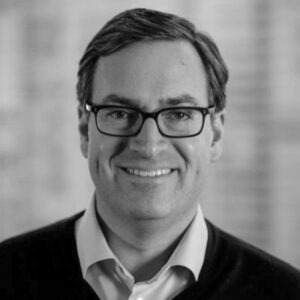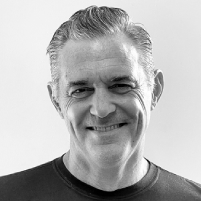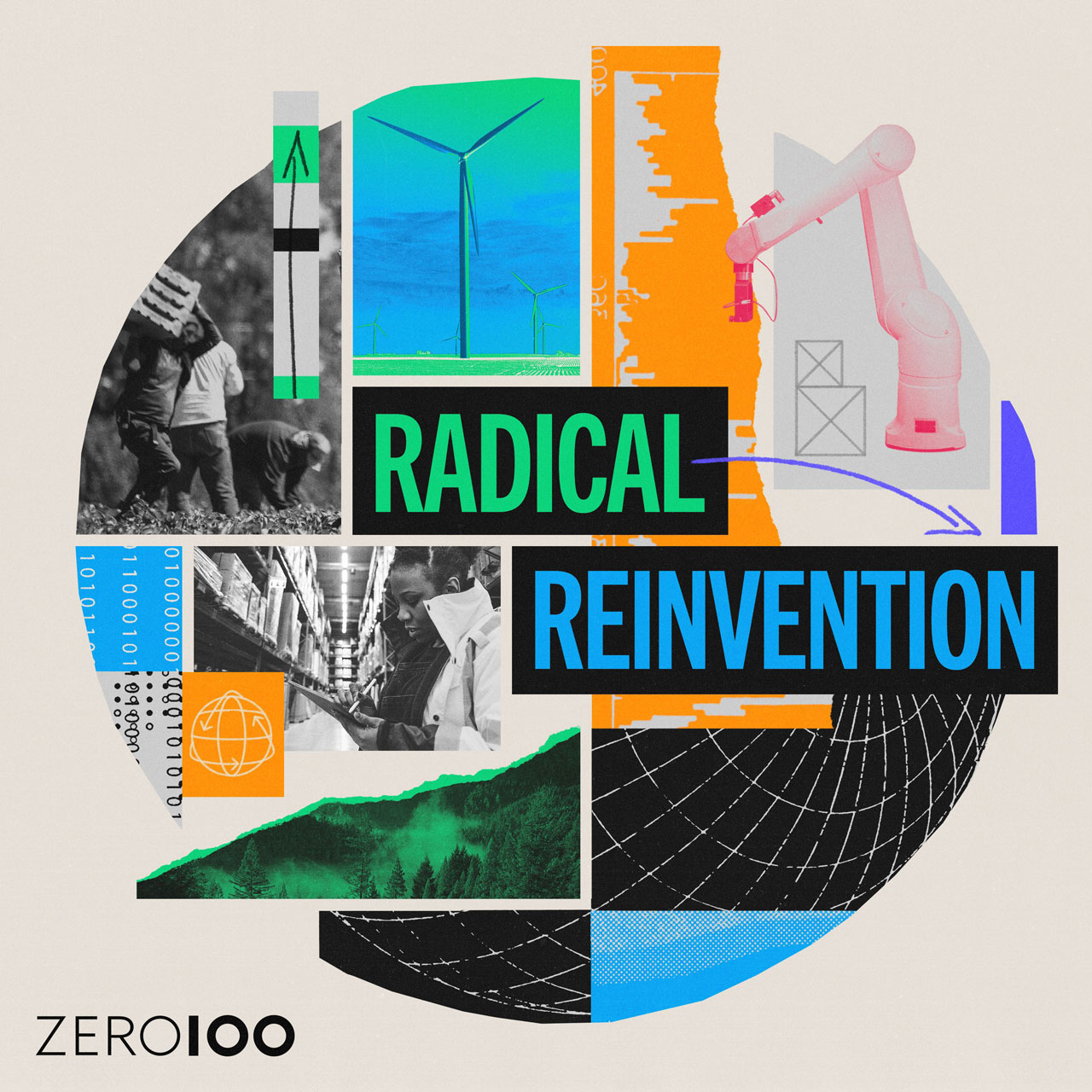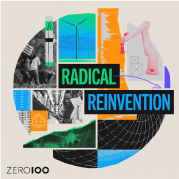
What Are Responsible Supply Chains? What Role Does Trust, Transparency & Tech Play?
In today’s episode, recorded live from Zero100’s annual Forum conference, Kevin unpacks the meaning of responsible supply chains – and what it takes to actually achieve them – with Anne-Laure Descours, Chief Sourcing Officer at PUMA, Reginaldo Ecclissato, Chief Business Operations and Supply Chain Officer at Unilever, and Dave Clark, CEO of Flexport.
Kevin O’Marah: Welcome, everybody. It’s great to be here for a conversation about responsible supply chains. I am joined by an esteemed panel of some of the greatest supply chain thinkers I’ve met in my life. Reggie Ecclissato, Chief Supply Chain Officer of Unilever; Dave Clark, CEO of Flexport; and finally, Anne-Laure Descours, Chief Sourcing Officer of PUMA. Reggie, if I could go to you first, just a little quick introduction about yourself, your role, Unilever, and just to the highest level, what do you think about responsible supply chains?
Reggie Ecclissato: Well, first, thanks for the invitation, Kevin. I’m Reggie Ecclissato. I lead supply chain for Unilever; I have been at the company for 32 years. We are a CPG company. We have many, many brands, and we operate in close to 191 countries around the world. We sell brands, we sell credibility to our consumers, and responsible supply chain is at the core of everything that we do in the company. We usually say that credibility is something that takes years to build, seconds to lose, and is very difficult to repair. This is core for us.
Kevin O’Marah: It’s a great observation. I think we should all live by that one. Dave, can I come to you next as the CEO of Flexport and an old CEO of Amazon Consumer who knows his way around supply chain.
Dave Clark: Sure. I’m Dave Clark. After 23 years at Amazon, I joined Flexport, a supply chain technology company really focused on making global trade easy for everyone and helping people on a single pane of glass get their goods from manufacturer to customer store or door. And that’s our mission and the path we’re on. When you think about it, supply chain is really at the intersection of some of the most important ESG initiatives in the world, whether it be environmental, planetary resources, labor, or the care of humans around the world. I think very few things have more of the world population engaged than the supply chain industry. And so the impact that leaders in this space have on humans around the world and the planet we occupy is immense. And one of the things I love about being in this profession is how seriously the leadership and the people who participate in events like this at Zero100 take that responsibility and ownership in the work they do every day.
Kevin O’Marah: I’ve always believed supply chain saves the world, and when you think of the big picture of what ESG means, there’s a lot to it. Anne-Laure, can I come to you now? Tell me a little bit about yourself.
Anne-Laure Descours: You can.
Kevin O’Marah: Please.
Anne-Laure Descours: Well, I’m a newcomer to Zero100. I lead sourcing and sustainability for PUMA and have done for a few years. I’ve been based in Hong Kong for 29 years, so Asia has been my world, and China has been my world for a long time. With responsible sourcing, the apparel and footwear industry has been very exposed regarding how we operate for many, many years, so it’s been part of the conversation for a long, long time. Having said that, it’s easier said than done, and I think the biggest transformation we’ve seen in responsible sourcing in the last few years is the necessity to engage with suppliers. Really working in collaboration and sharing values and commitment, working in a long-term way, and not jumping from one to another, which was the case in the apparel business for many years.
And there’s been a big transformation. Our industry was hit by NGOs, activists, and consumers for quite some time, so we learned the lesson very early that we had to handle things responsibly, but how much you translate that into real action has been quite instrumental in the last few years.
Kevin O’Marah: And I think that’s part of the reason we’re all here, for this session and Zero100 in general. And I think your experience on the apparel side, which you and I have shared some conversations around, leads me to the first question I’d like to have each of us think a little bit about. What’s the most important thing you can avoid to try to make sure you maintain trust, build trust, and avoid eroding it? Reggie, I’ll come to you first, if you don’t mind. How do you think about that?
Reggie Ecclissato: Yeah, I would start saying the whole walking the talk. It’s extremely important. Providing full transparency of the value chain to consumers is something that many industries and many companies have invested in quite a lot. We have invested quite a lot to be able to provide this transparency. And consumers want to understand exactly what you do and how you do it, from whom you are buying from to the conditions in which we procure materials, from the way that you are treating your employees to your third parties and the whole ecosystem.
If you look at everything related to climate, from social to nature, it’s something that we are 100% exposed to. Whatever you do, it’s going to be public, and you need to be absolutely sure that you are walking the talk. One thing that has been very important to me over the last year is the role of technology and how technology is helping us remain truthful to our purpose and the things we do. Like, for instance, we have palm oil. Palm oil is the main agricultural material that we procure from Southeast Asia, and the only way we could be absolutely sure that we source from deforestation-free areas was to start monitoring that. The only way to do it was through technology, and we have a partnership with Google, Descartes Labs, and many other tech companies.
Kevin O’Marah: Yeah, I think that transparency and trust, which is the beginning of the question, are about customers and consumers. From the apparel side, this question of where we are getting our materials, where we are getting our product, has been hot. How do you think about what to avoid, and then what tools have you got for avoiding things that will erode trust?
Anne-Laure Descours: I don’t think you can avoid the question, I think you have to accept the question and try to answer it the best way you can. I couldn’t agree more with what was just said, but one thing I want to add here is, in this hope to get transparency and transferability, what is the impact on your suppliers? We take, sometimes, from a very Western approach, and as much as we want that to happen in the supply chain, you have to recognize local needs and local obstacles. So for me, it goes through education and really to your point of walking the talk, but making sure that it comes from the top and the bottom, everybody in your organization getting the meaning of that. If you haven’t educated your own people on why you’re doing it, for what purpose you’re doing it, how it’s impacting your suppliers, and how this benefits them, then it’s not going to happen. It’s going to be very superficial. And then you get the NGOs coming on the activities, and you’re not walking the talk; you’re greenwashing. So, for me, education comes first. Making things very visible and explaining the benefits and, again, going back to trust, you have to make sure that part of your profit is being shared. If you don’t give back some of your profit to your suppliers, to the supply chain, there is no way they’re going to do it. No way. So you have to be very honest with yourself and the people you work with, saying, this is where we are going; how can we get there together? This togetherness is absolutely critical, and in the upper industry, that collaboration piece has been at the center of many things we’ve been doing.
Kevin O’Marah: I’m interested in lessons learned around tech. Reggie, you talked about the tech solve with the palm oil question. What kind of solves, when you think of tech, are possible in terms of engaging with the supply base and walking the talk?
Dave Clark: Well, I think, tying back to the last question, over the last decade or so, you’ve seen an emergence of a couple of things. One, companies viewing their ownership moving past geographic borders and organizational walls, and the emergence of supply chain moving from more of a procurement entity into more of a strategic partner in the boardroom (and that’s coming because you can’t just have a supplier anymore). You can’t say, oh, that’s my supplier. Nobody cares about that anymore. You need to have transparency, visibility, and the ability to understand what’s happening with your suppliers. And you need to have control over the process, or at least input on the process as it comes through your supply base. And that’s a big shift, and supply chain leaders are at the center of that now, and the profession has changed a lot as a result. Technology is the enabler of that over the long term.
In the short term, it’s great leaders, people on the ground, NGOs, and other people who are seeing and engaging. In the longer term, it comes down to a lot of technical initiatives that give you more visibility into manufacturing, raw material sourcing and tracking, and visibility on what’s happening on the ground in countries where farming or harvesting or whatever is happening. And then the overall transparency around the movement of goods. So, I think all those things are in play now, and when you look at what AI, sensor fusion, and technologies can bring, I think over the next decade, it’s really going to be amazing how deep you’re going to be able to see into the manufacturing process and supply chain. And that’s part of our role in the company I’m at now; trying to help companies who don’t have the technical capabilities to do that, to help bridge the gap for them into the next generation of tech.
Kevin O’Marah: Tech as an enabling piece of this puzzle is intriguing because everybody is working pretty hard on getting their hands around tech just to keep up with the market volatility. You start thinking about responsible supply chains and I think this trust and transparency and working with suppliers in a shared fashion is clearly a step in the right direction. But I’m going to throw something at you, which is the Scope 3 carbon question, where the complexity of the science and the interconnectedness of it, as you said, Dave, means I can’t just say, hey, that’s my supplier. Any thoughts about how, as supply chain leaders accountable for all these relationships, something like Scope 3 can be shrunk to become a problem that isn’t about solving everything in the universe? How can it be turned into, here’s something I know we can do, walk the talk, and here’s something we can share together? What do you think, Anne-Laure?
Anne-Laure Descours: Well, we started to work with the suppliers on that level. Working on the first, easy part, I would say, is renewable energy. How do you engage with the suppliers to help them or to work together on renewable energy to reduce your carbon footprint or renewable water? There are multiple programs, there are multiple initiatives. Through the industry summit, we’re working on building a consensus among the industry. What is it we’re going to ask the suppliers? Because if we come to a vendor with certain expectations and another brand comes with another expectation, then it creates a lot of confusion. This collaboration, this alignment between us, it is absolutely critical to make sure that along the chain, everybody works toward the same rules, the same standard, the same vision.
Then we’ve been engaging a lot with different organizations. We just hosted a science-based target forum with our suppliers, defining what we are looking at and how we can collaborate and share best practices between suppliers. Those who are more advanced, how can they share, and what can they share with the others so that we can learn from each other? As we are piloting and developing this learning piece, we really need an openness otherwise, you’re never going to get there because the investment in terms of CapEx is quite significant.
Kevin O’Marah: For renewables?
Anne-Laure Descours: For everything. It’s quite significant.
Kevin O’Marah: Recycling.
Anne-Laure Descours: If you don’t have a business plan with them and say, this is where we’re going to get together in the next five years, it’s hard for them to start building these investments.
Kevin O’Marah: Reggie, I have to come to you on this.
Reggie Ecclissato: I agree with 100% of what you said, and it’s something that you cannot do by yourself. You need to have other players in the industry; you need to have industry associations; you need to have the government with regulations; you need NGOs, and so forth. I think it’s an orchestrated movement that really needs to happen. The complexity is huge. I think all of us work with thousands of suppliers and with a very diverse geographical footprint, it is not simple at all, but I believe we need to get traction on reducing carbon footprints. To me, that’s the most important thing, but I agree 100% with you, and it’s great to see that upper-level industries are doing that. And we need more industries to be able to do it.
Anne-Laure Descours: One thing I want to add here is it’s also challenging because each government in each country may have different regulations and different propositions, one solution that might be applicable for Bangladesh might not be applicable for Vietnam or might not be applicable for China, and this is adding to the complexity of making this program viable. So for me, we are more at the stage where we are learning and bringing our heads together to try to find the way and shape direction before really acting, this making-sense moment is critical because otherwise, you start doing something, and you realize it is just nonsense. You have to have this moment of collective action where we really figure out what it is we can do and want to do.
Reggie Ecclissato: What’s important is that when you look at carbon or climate change, there is another element that is extremely important to make it sustainable, and it’s related to social. We talk quite a lot about a living wage, but if you don’t have, I would say, a more structured proposal to really get a living wage implemented in many parts of the world, this is not sustainable. When you talk about climate, you need to talk about social, and, for us, in our state, you need to talk about nature as well. They need to come fully integrated.
Dave Clark: Part of the challenge I think you get here is that the intentions tend to be very central, and the actions are very local, so you have a very centralized view of how the world should work. It tends to be a very Western vision of how the world should work, and then the local execution of that vision can be hyper-local due to infrastructure availabilities — what is life like in that region, what does water conservation look like? Things are in very different statuses in different parts of the world, and we tend to measure them by one bar in a central way, but execution happens very locally. How do you get a steady view of what success is? This is incredibly important and very daunting, to get consensus and make progress towards it.
Kevin O’Marah: It’s a systems issue, so environmental and social do touch each other, and these pieces all end up being a giant whack-a-mole game; this whole sustainability thing is a massive whack-a-mole game. What strikes each of you as the biggest trap, having wrestled with this, that others could benefit from having flagged?
Anne-Laure Descours: For me, it’s a work in progress. The one thing I would say is, how do you get the consumer to understand the journey we are on and where we’re at, especially the Gen Z consumer? Because on one hand, and I have Gen Z kids, they’re very much into this conversation, and they basically blame us for screwing up the planet, and now they want us to fix the planet. But at the same time, their behavior might not fix the planet. So how do you bring that education to the consumer? For me, it is probably the most challenging part because at the back, we do a lot, we are all committed, all of us. We really want things to be done in a better way, and to me, that’s the biggest challenge I see today. How do you bridge between what we do, what they want, and what needs to be done?
Dave Clark: There’s a disconnect between words and action. There’s been lots of conversation around this, but people love to buy a $5 dress from Wish or many of the fast fashion brands that are very, very low-cost. These are the highest-demand products and some of the fastest-growing brands and products there are. So if there is a trap, maybe it’s a long arc of change for quality of life, for regenerative resourcing in countries for supply. These are long arcs of change that you need a lot of patience and engagement with over a long time, and we need to make sure we stick to and don’t get hyperbolic about intentions. You just have to grind it out. There’s some big innovation that I think needs to happen that’ll take step functions, but most of that exists when it comes to really hard problem, physics problems like flight and battery life and things that you need to electrify like some of the most carbon-intensive transports on the planet, and that’s just going to take time.
Kevin O’Marah: Reggie, I know you guys at Unilever have spent a lot of time leading on this, but presumably also as a family of great consumer brands, what do you think about the consumer? Will we get to the point where the consumer appreciates and doesn’t just support you at the brand level but also, really, at the purchase level and the behavioral level on an ongoing basis?
Reggie Ecclissato: Yeah, a couple of things. One is about what you call brands with purpose; they grow faster, and we have proven that with our brands like Dove, Ben & Jerry’s, and many others, they have a very strong purpose, but they also deliver functional benefits to consumers. Consumers are willing to pay for that, and there is value. That’s the first thing.
The second thing is that I agree with Dave. I think this is a long journey that you need to commit, you need to invest, and so forth. Technology will come, and so forth. I think you need to always be prepared to be criticized for the things that you still don’t do rather than recognized for what you are doing, and you need to have resilience during this journey. But the vast majority of consumers, they say, I’m not willing to pay for you to do the right things; you should do the right things. I think the whole education Anne mentioned is extremely important as well, to keep educating consumers about those things.
Kevin O’Marah: Let me ask you what I think is a bit of a provocative question. Are the NGOs doing more good or harm right now regarding engaging the consumer? I sometimes worry about greenhushing. Do you think the NGOs are more good or bad at this point in the evolution of this movement?
Dave Clark: Do any NGOs watch this podcast?
Anne-Laure Descours: I think it’s good to have them. They need to be part of the conversation. To me, it’s like regulation. I think this is pressing, and to your point, we’re never going to be celebrated for the right things we do. We are going to be blamed for whatever we don’t do. We need to accept that. One thing I find interesting about sustainability is that, for the past many years, it has been very much an expert conversation. Only experts were talking about sustainability. Over the last few years, this has had to move to businesspeople. Now, basically, when you do business, you have to be, not an expert, but knowledgeable on sustainability and supported by experts. So we’re moving away from this very expert silo conversation, which was a top-down approach, and you said, You need to do that. Now it’s embedded in every part of the business, from the top to the bottom.
Everybody has their part to play in sustainability, it is a big change, and that’s why, for the NGOs, it’s probably a bit of a different conversation because they’re not talking among each other anymore. They have to open the conversation to people like you, like us, who have much more knowledge on this topic, and we can start to have valuable conversations. So, I see the benefit of NGOs. At times I fight with them because we may disagree, but at least there is a debate, and I think the debate is helping everybody, so I welcome them.
Reggie Ecclissato: And I agree. This whole learning from each other is something that happens, but also NGOs play an important role in helping with the relationship with governments and helping us remain true to ourselves. There is huge value in working with NGOs for those things, and sometimes, of course, you have issues, and you learn from them, they learn from us, we have tough conversations, and sometimes we agree to disagree.
Dave Clark: That happens internally too.
Reggie Ecclissato: Exactly.
Dave Clark: I think we all have come to expect that with size comes responsibility, and NGOs play a role in that. It’s also hard to talk about the abstract. Just like people, there are extremes on all sides. The thing that worries me more, frankly, is where you have very, very large sums of money, like massive retirement funds and pension funds, placed in very blanket systems with rules set by a very small number of people. Their intentions are correct, placing investments with certain criteria on them, but something I want to make sure we don’t fall into is investing too far out into the future instead of helping invest in the curve between here and there. So much money now is institutional money, and it’s growing into that ESG realm, and you could miss an opportunity to make great progress in the next decade while trying to solve some magical problem twenty years out.
Kevin O’Marah: Yeah, that’s a great observation about a specific trap. That’s worth thinking about, but I think the conversation, regardless of who’s driving it, NGOs or large companies and customers themselves, it’s a conversation that’s not going to stop. We’re about to wrap here. I want to ask if you feel like offering any final thoughts about responsible supply chains?
Dave Clark: It’s just a way of life now. I don’t think you can be in the supply chain anymore without waking up and thinking about your impact on people and the planet. That’s a shift, in the last 25 years or so that I’ve been in the business, that I’ve seen. It is just a fundamental shift; it’s a core of what I wake up thinking about every day. We have a ten-year-old company that’s really come into its own in the last five years, and we already have a massive investment in sustainability and engagement with humanitarian relief around the world — that would not have happened a decade ago. That’s a transition. A startup company, growing really fast like Flexport, is heavily engaged in sustainability, CO2 tracking, carbon reduction, and humanitarian relief. Before, I don’t think that would’ve been the case. That’s not where we would’ve invested time and resources, but it’s because all of this is not an adjunct to the business anymore, it is the business.
Kevin O’Marah: Right. That’s a great point, and clearly, here we are, Zero100, we’re talking about it all day.
Reggie Ecclissato: Definitely, it is the way to do business. I don’t believe there is any other way to do business; you have to have sustainability at the heart of your operations. I think we need to accelerate the pace because this is becoming more table stakes, and it’s something that consumers are starting to demand; full transparency around everything that you do is becoming more and more important.
Anne-Laure Descours: This collaboration principle is absolutely key, and I think the only way for us to get to a better way of doing our product is to go through this collaboration, this sharing of innovations and best practices, and to really be much more open. Yes, we have limits because of antitrust and other things, but there is no other way. We need to do it together. We are at a different speed when it comes to Europe. Expectations are very high. Regulations are becoming very strict. The US is getting there, but the rest of the world is not there yet. It doesn’t matter because, for us, as a brand, we’re going to have to make it happen in Brazil like we are in South Africa or China. But that piece of collaboration, of openness and being humble, it’s a journey, and it’s a tough journey. Thank goodness technology is helping us right now. It is fantastic because it is accelerating the way we can transform, but it’s going to really be centered around collaboration and being open and transparent.
Kevin O’Marah: What a perfect closing point. Great stuff. Really appreciate it.
Anne-Laure Descours: Thank you.
Dave Clark: Thank you.
Reggie Ecclissato: Thank you.
For a list of reports and resources on how our members are using tech for traceability initiatives, be sure to check out our show notes. This episode of Radical Reinvention was produced by Brian Egan, Ursalaan Khan, Mike Silverman, Diane Hope, Nick Heinimann, Catherine Parry, and me, Victoria Marin. Duda Rodrigues edited this episode, and Ko Takasugi-Czernowin is our sound engineer and also composed our theme music. To find out more about Zero100 and to check out our content library, go to Zero100.com. If you’re interested in joining our community of contributors, send us a note at hello@zero100.com.
In this Episode

Anne-Laure Descours
Chief Sourcing Officer, PUMA

Reginaldo Ecclissato
Chief Business Operations and Supply Chain Officer, Unilever

Dave Clark
Former CEO of Worldwide Consumer, Amazon

Kevin O'Marah (Host)
Co-Founder, Zero100

About the Show
This podcast features conversations between Zero100 and a rotating cast of thought leaders and industry experts sharing their views on challenges related to current events in supply chain, and how solving these challenges brings the world closer to a zero percent carbon, 100% digital future.
Listen & Subscribe
More Episodes
SEE ALL